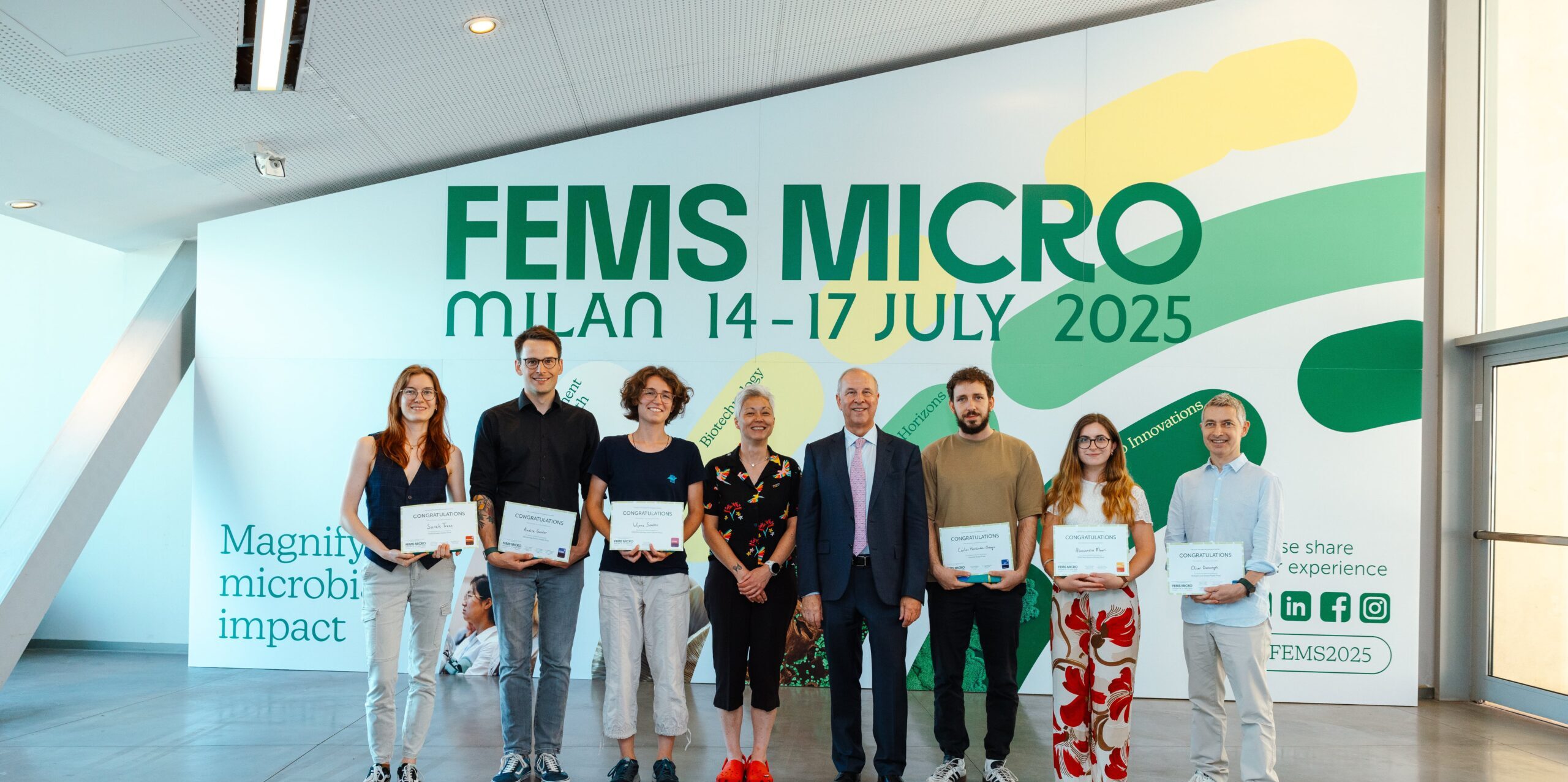FEMS MICRO 2025 Poster Prize Award Winners
Spotlighting Excellence
 At FEMS, we believe exceptional research deserves recognition. That’s why FEMS Journals regularly award poster prizes, especially to early career researchers at scientific meetings, to celebrate emerging talent.
At FEMS, we believe exceptional research deserves recognition. That’s why FEMS Journals regularly award poster prizes, especially to early career researchers at scientific meetings, to celebrate emerging talent.
FEMS MICRO 2025 was no exception. Each of the seven FEMS journals selected one winning poster, chosen by the respective journal editors for scientific merit, clarity of communication, creative presentation, and memorable impact.
The winners were announced during the closing ceremony and received certificates presented by Clare Taylor, Editor-in-Chief of FEMS Microbiology Letters.
The Winners:
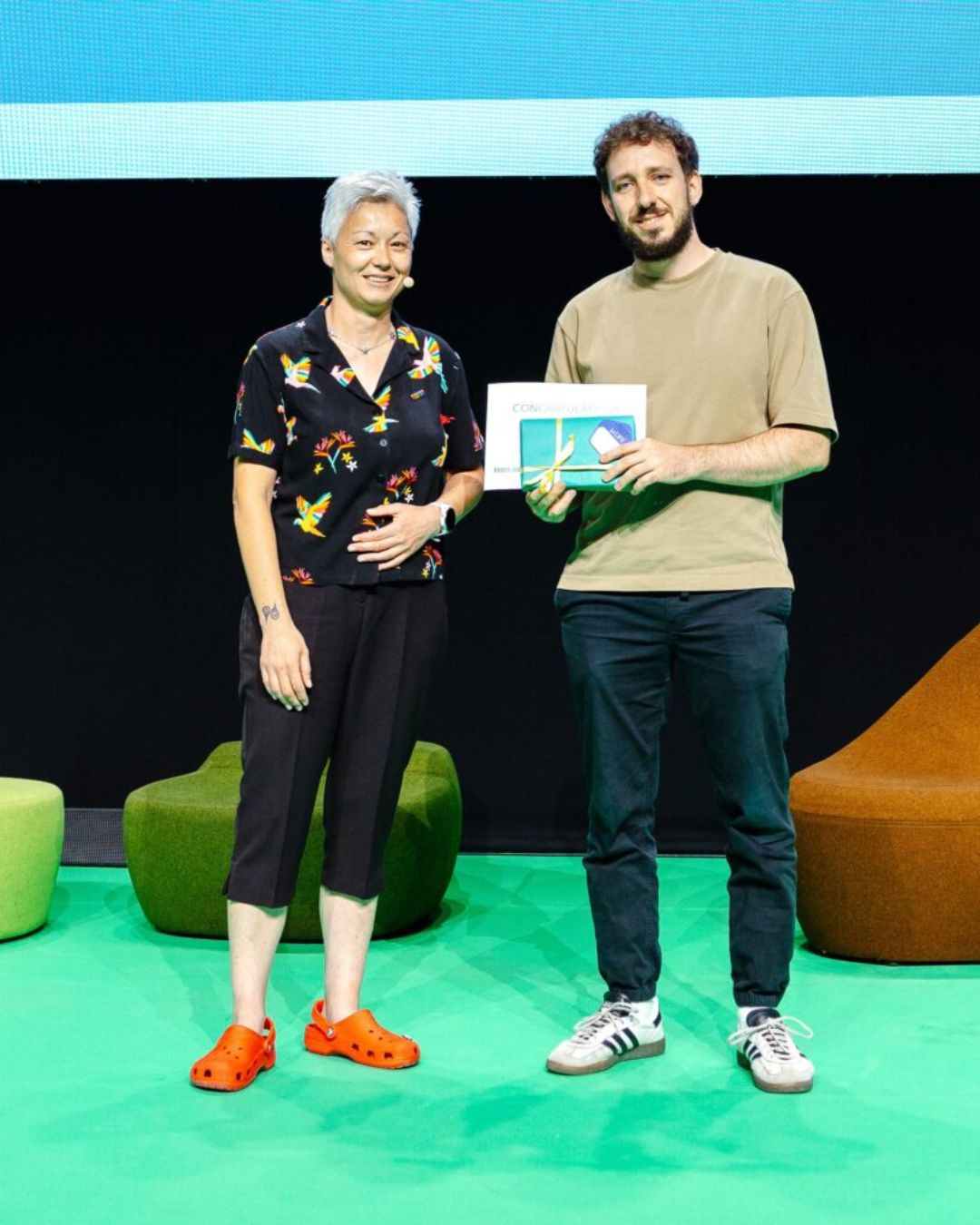
Carlos Hernández-Ortego – Carlos’ presentation on Gut bacteria degrade the danger signal extracellular ATP to hypoxanthine was recognized by the editors for demonstrating how bacteria secrete ATP-degrading enzymes, with a comprehensive identification of all enzymes involved in the extracellular ATP degradation pathway. Awarded by microLife.
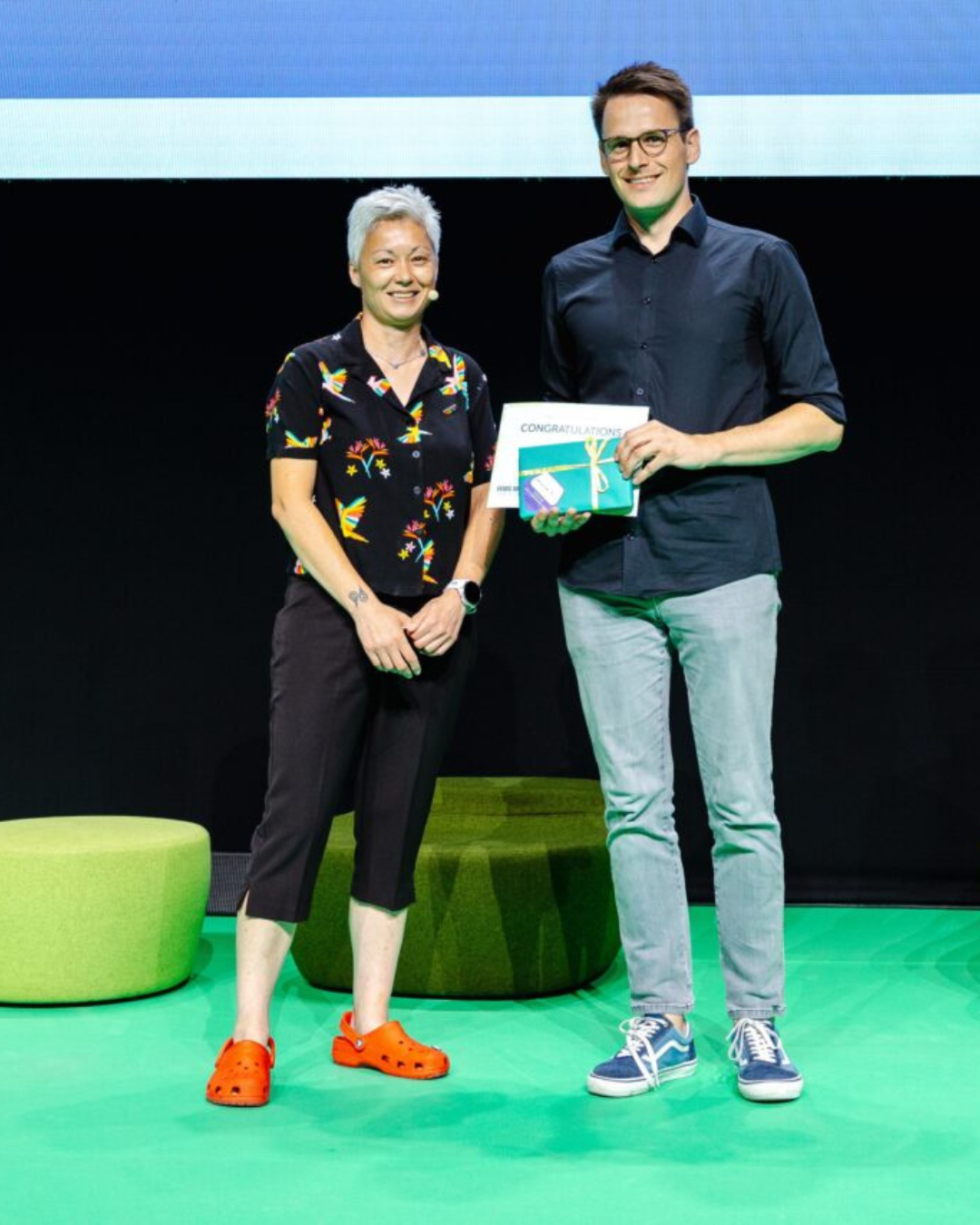
Andre Geisler – Andre’s poster on Diversity and function of bacterial vesicles of the human gut microbiome received the FEMS Microbiology Reviews Poster Prize. The editors appreciated how conceptually provocative and technically challenging it is to isolate vesicles, making this work stand out.
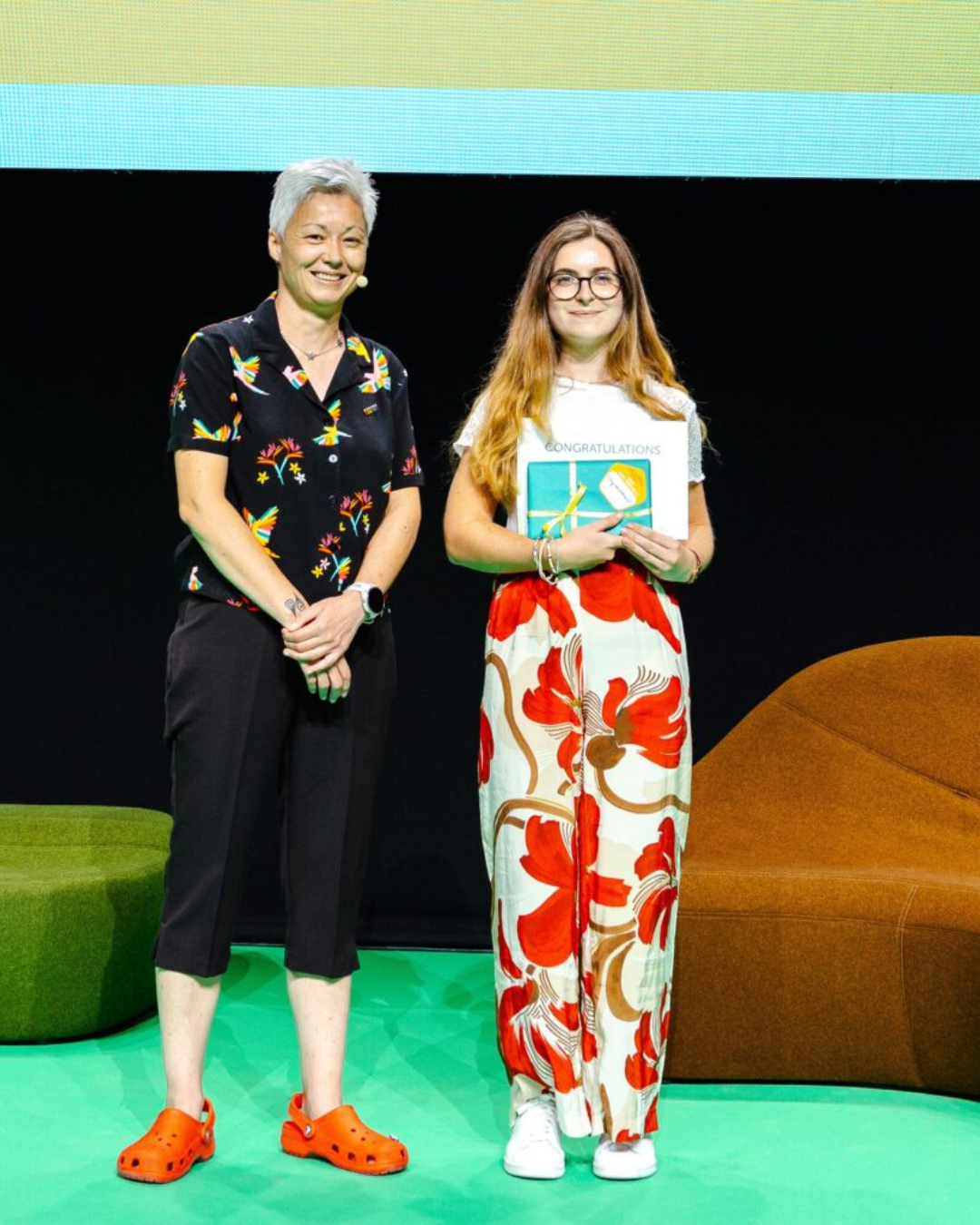
Alessandra Mauri – Alessandra’s poster, Scale-up of the production of L-Malic acid in engineered Ogataea polymorpha using methanol as the sole carbon source, was awarded the FEMS Yeast Research Poster Prize for presenting findings that are crucial to the development of new sustainable bioprocesses.
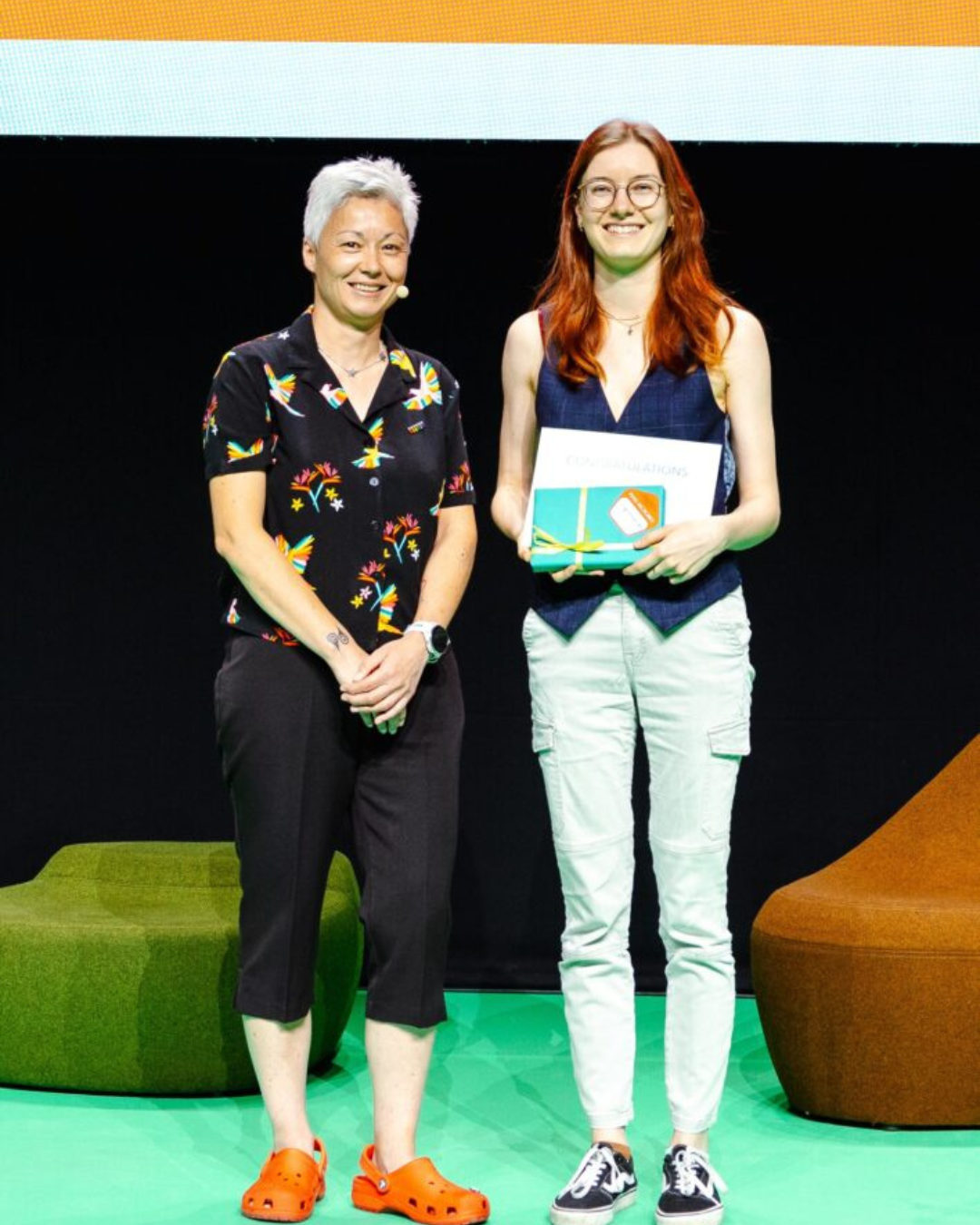
Sarah Trenz – Sarah’s presentation on Revealing the mechanism of insertion of Legionella’s integral membrane effector proteins into host cell membranes was selected for the FEMS Microbes Poster Prize.
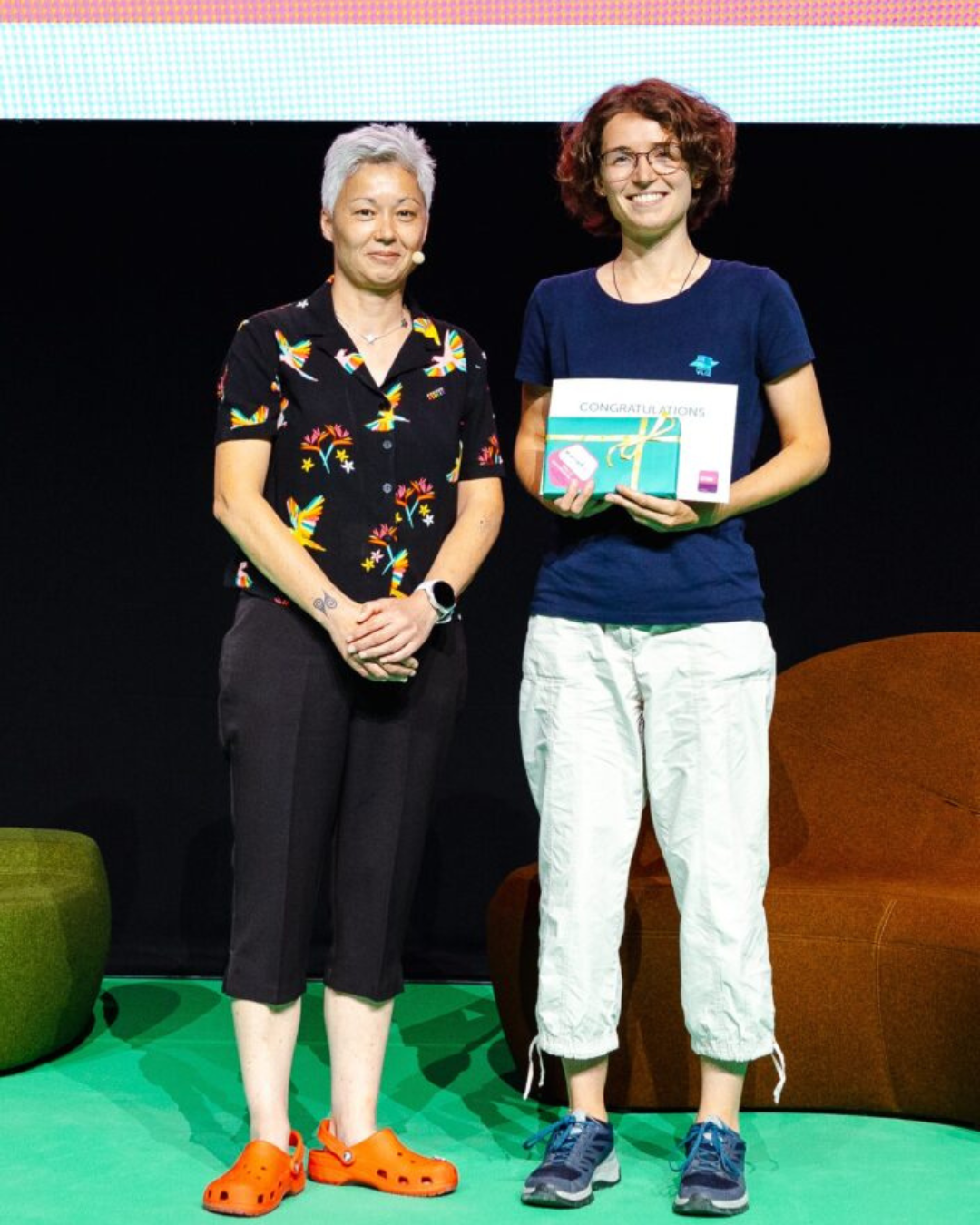
Wyona Schütte – Wyona’s poster, Explosive legacies: Revealing wartime TNT pollution in the North Sea through Bacterial Indicators, was chosen for the FEMS Microbiology Letters Poster Prize.
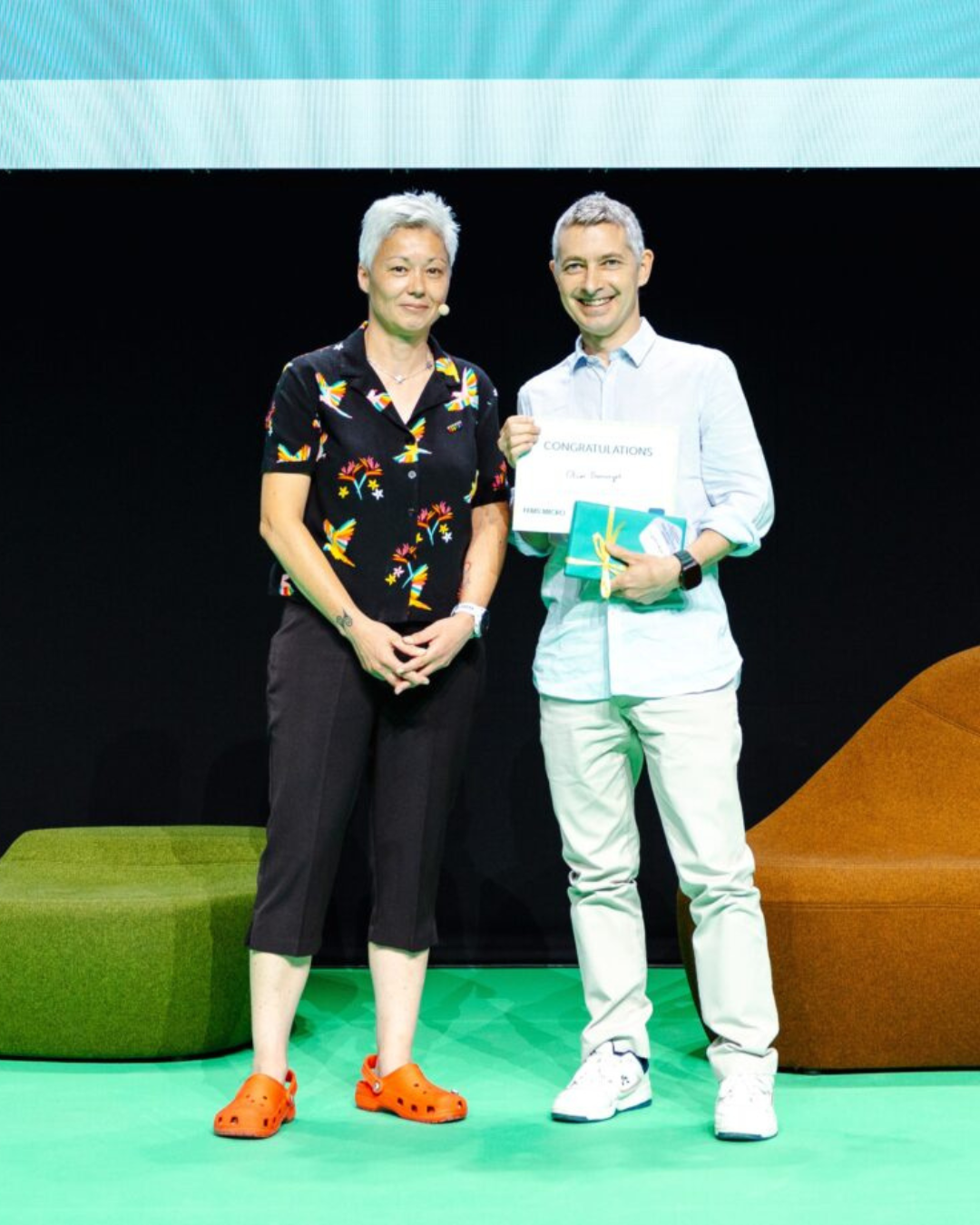
Olivier Dussurget – Olivier’s presentation on NAD kinase as a new antibiotic target was recognized with the Pathogens & Disease (soon to be FEMS Infectious Diseases) Poster Prize.
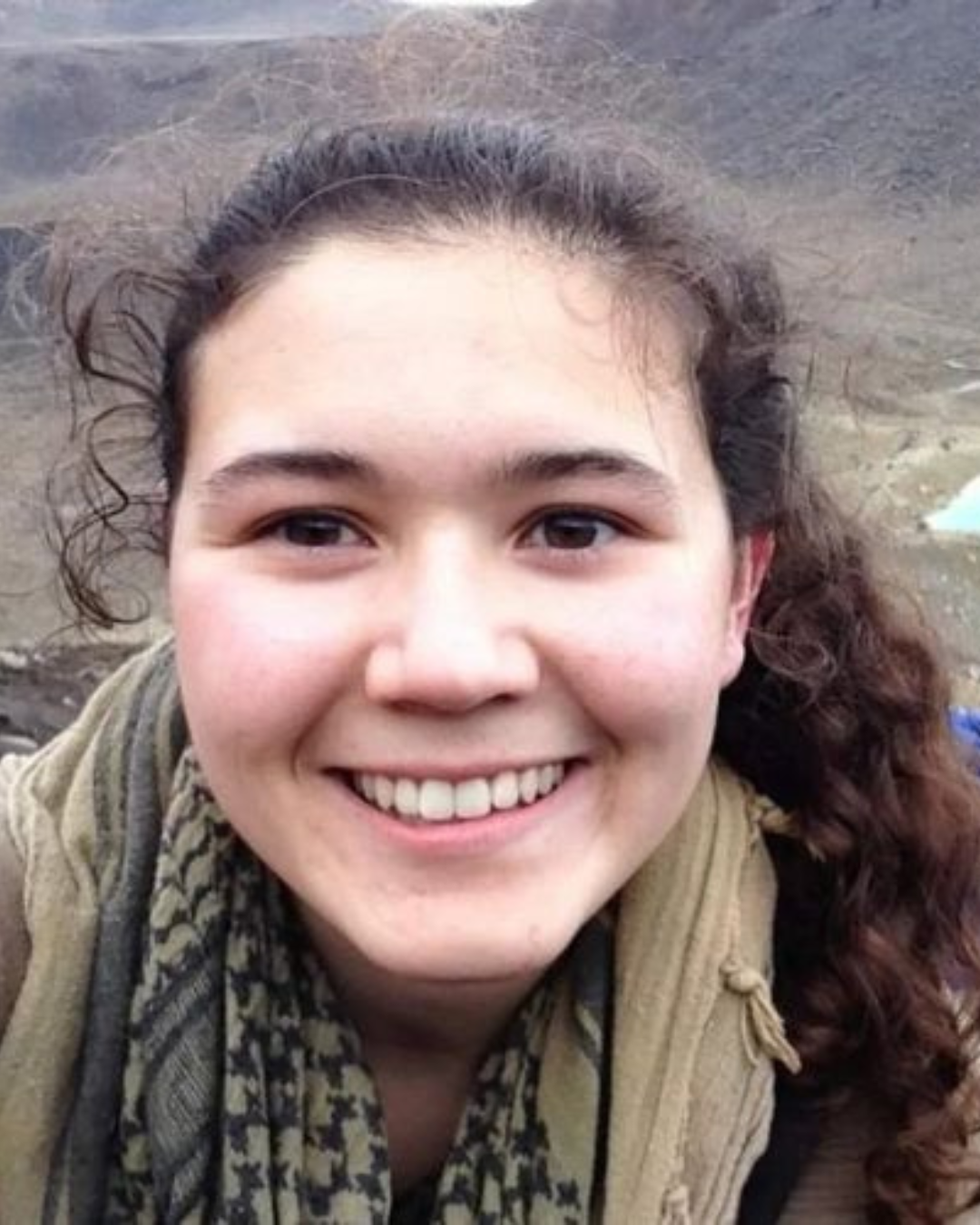
Stephanie Nobs – Stephanie’s presentation on New Asgard Archaea enriched from hypersaline microbial mats from Shark Bay, Western Australia was selected as the FEMS Microbiology Ecology Poster Prize winner. Stephanie had to leave shortly before the award ceremony.
Open access is key to supporting the FEMS mission of disseminating high quality research as widely as possible: when high quality, peer reviewed sound science is open access, anyone, anywhere in the world with an internet connection, can read it. All but one of the not-for-profit FEMS journals are fully open access (OA), with one journal, FEMS Microbiology Letters, offering free-to-publish and OA options.

